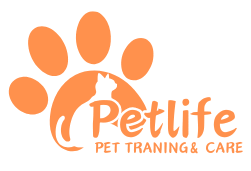Overview of Pet Ferret Care
Although pet ferret care is not difficult by any stretch of the imagination, it is not as easy as caring for small pets like hamsters or mice. An important aspect of pet ferret care is spaying or neutering your pet. Proper bedding for pet ferret care can consist of sheets, hammocks, or blankets. Food Nutrition by far, is the most important aspect of pet ferret care. Accurate pet ferret care information can be hard to find despite the ferret being one of the most sought after pets.
Ferret
Ferrets are probably one of the most enjoyable pets you can own, but they certainly are not for just anyone. Ferrets are a domesticated animal and are of the Mustela Putorius family being related to pole cats, weasels, badgers and skunks. Ferrets are prone to many diseases when they get old, so you should plan for this as time goes by. Ferrets are an alert, inquisitive and intelligent pet. Ferrets love raisins, bananas and a variety of other food sources. Ferrets need a cage no smaller than 2x3x2 feet and plenty of toys. Ferrets have neutral or slightly fishy breath; bad odors are associated with gum disease, decaying teeth, or gastrointestinal problems. Ferrets are very sturdy animals and hide their illness until it’s really bad. Ferrets catch and transmit the human flu.
Health
Supplements such as Ferret one and Nutrical are good maybe once a week to keep your ferret healthy and to keep their fur nice and shiny. An educated pet owner can provide a safer, happier, and healthier environment for their pet, thus making both the pet and themselves a good match. As long as the flesh of the prolapsed rectum is a nice healthy looking rosy pink it’s healthy. If the healthy pink color starts to fade take your pet ferret to the vet for a consultation. If you are concerned about being flooded with an endless amount of expensive veterinarian bills that you don’t know if you will be able to pay you may want to consider purchasing animal health insurance for your pet ferret.
Veterinarian
Taking your ferret to the veterinarian for annual exams is needed for adequate ferret care. Ferrets over the age of 2 can have more medical problems including adrenal disease, insulinoma, other cancers and heart disease and should probably see a veterinarian every 6 months. In today’s medically advanced world of veterinary medicine your pet’s outcome is more positive. Most diseases commonly found in ferrets will need some type of veterinary care which will often include surgery.
Cages
Wood cages can be used but may be difficult to clean when soiled. Wooden cages are not recommended as they will hold odor and stink up the house. Some ferret owners have cages and others let them have the run of the house. Ferrets can be messy so cages can contain their mess. Aquariums are not suitable cages for ferrets because the ventilation is quite poor. Wire cages can be used, but since rodents like to dig, be prepared to clean up bedding that has been tossed out from the surrounding areas. Ferret cages should have solid floors; solid multi-shelves joined by ropes or ramps and secure latches. They have to wire up cages certain ways so that they don’t get out. Even normal cages are not acceptable; they have to have extra wiring on them.















